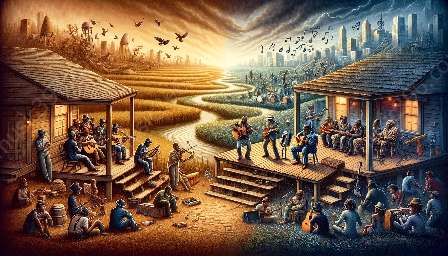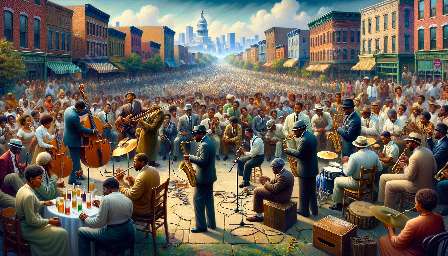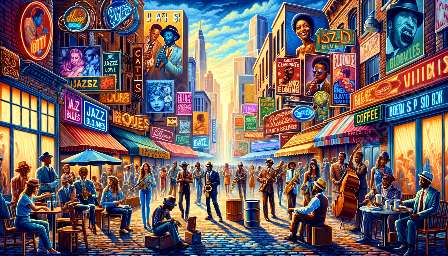Welcome to a journey of resilience, empowerment, and cultural influence. In this topic cluster, we'll delve into the profound impact of jazz and blues on the resistance to apartheid and the social movements it inspired. We'll explore the ways in which these musical genres empowered communities, sparked activism, and became powerful tools in the fight against segregation and injustice.
Introduction to Apartheid Resistance
The system of apartheid in South Africa, which spanned from 1948 to the early 1990s, was a brutal regime of institutionalized racial segregation and discrimination. It enforced oppressive laws that forcibly separated people of different races, denying basic human rights and perpetuating deep social and economic inequalities.
The resistance to apartheid was multifaceted, encompassing various forms of protest, activism, and cultural expression. Music played a significant role in the struggle, serving as a unifying force, a source of strength and hope, and a platform for disseminating messages of resistance and solidarity.
The Impact of Jazz and Blues
Jazz and blues, with their deep roots in African-American culture and history, carried a particularly potent resonance in the context of apartheid resistance. These genres were not only musical styles but also embodied narratives of oppression, resilience, and the quest for freedom.
With their emotive melodies and poignant lyrics, jazz and blues served as a means of articulating the experiences and emotions of those affected by apartheid. These genres provided a voice for the silenced, a soundtrack for the struggle, and a medium through which to communicate the shared aspirations for justice and equality.
Empowerment Through Music
For the oppressed communities in South Africa, jazz and blues became symbols of resistance and sources of empowerment. Musicians and artists utilized their craft to uplift and mobilize individuals, fostering a sense of unity and purpose. Through their performances and recordings, they imparted messages of defiance and resilience, inspiring courage and determination in the face of adversity.
Spreading Awareness and Solidarity
Jazz and blues also played a crucial role in raising international awareness about the atrocities of apartheid. Musicians from around the world incorporated themes of social justice and anti-apartheid sentiments into their compositions, using their platforms to shine a spotlight on the struggles of the South African people. This global solidarity amplified the voices of those fighting against apartheid and contributed to the mounting pressure for change.
The Evolution of Protest Music
As the resistance movement gained momentum, jazz and blues evolved within the context of protest music. Songs became anthems of defiance, sung in the streets, at rallies, and in clandestine gatherings. Their lyrics conveyed narratives of hardship, hope, and the collective determination to dismantle the oppressive regime.
The Legacy of Apartheid Resistance Music
Though the apartheid era has ended, the legacy of resistance music, particularly jazz and blues, continues to reverberate. These genres have left an indelible mark on the cultural landscape, and their impact on social movements extends beyond the borders of South Africa. They stand as a testament to the power of music as a force for change, unity, and the resilience of the human spirit.
Conclusion
As we conclude our exploration of the impact of jazz and blues on apartheid resistance, we recognize the transformative influence of these musical genres. Their ability to empower, unify, and inspire in the face of adversity serves as a powerful reminder of the enduring spirit of resistance. Let us continue to honor the legacy of these musical traditions and the pivotal role they played in the fight for justice and equality.






























